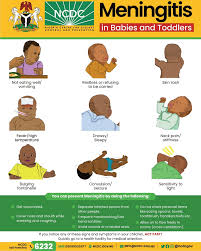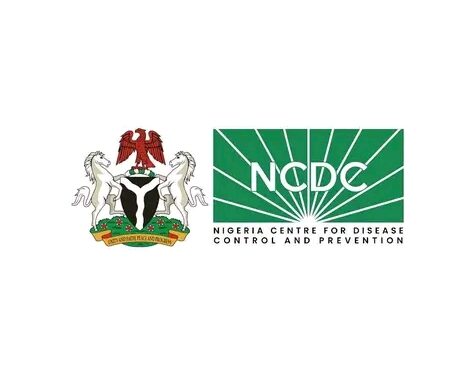The Nigeria Centre for Disease Control and Prevention (NCDC) has reported a surge in the number of deaths due to cerebrospinal meningitis (CSM), with the toll rising to 156, up from 74. This grim update, which reflects data from week 40 of 2024 to week 12 of 2025, also revealed that there have been 1,858 suspected cases of the disease across 23 states and 121 local government areas in Nigeria. Of these, 126 cases have been confirmed. The case fatality rate (CFR) now stands at 8.4%, underscoring the severity of the outbreak.
The states currently reporting suspected CSM cases include Adamawa, Akwa-Ibom, Anambra, Bauchi, Bayelsa, Benue, Borno, Ebonyi, Ekiti, the Federal Capital Territory (FCT), Gombe, Jigawa, Kano, Kaduna, Katsina, Kebbi, Niger, Ondo, Osun, Oyo, Plateau, Sokoto, and Yobe. Among these states, Kebbi has been the hardest hit, with 67 deaths, followed by Sokoto with 33 fatalities. Other states such as Katsina, Jigawa, Yobe, Bauchi, Gombe, Borno, Kano, Adamawa, and Oyo have also reported deaths, though in smaller numbers.
Cerebrospinal meningitis is a severe infection of the meninges, the membranes that cover the brain and spinal cord. The disease can be caused by a variety of pathogens, including bacteria, fungi, and viruses, but bacterial meningitis, particularly that caused by meningococcus, remains the leading cause of epidemics. The World Health Organization (WHO) highlights that meningococcal meningitis, which accounts for the majority of outbreaks in sub-Saharan Africa, is most prevalent in the so-called “meningitis belt,” stretching from Senegal in the west to Ethiopia in the east.
This region, with an at-risk population of about 500 million, is particularly vulnerable during the dry season, from December to June, when conditions such as low humidity and high dust levels contribute to the spread of the disease. The WHO identifies four main causes of acute bacterial meningitis, including meningococcus, pneumococcus, Haemophilus influenzae, and Group B streptococcus (GBS). Among these, meningococcus is the most prone to causing large-scale outbreaks.
The most affected demographic groups in the current outbreak are children, young adults, and infants, with one in four survivors likely to suffer from permanent disabilities such as hearing loss, seizures, and difficulties in vision, speech, and memory. Furthermore, some may face amputations or permanent limb weakness. Despite the severity of the situation, efforts to combat the outbreak have been ramped up. The Federal Ministry of Health and Social Welfare recently received over one million doses of the pentavalent meningococcal conjugate vaccine (Men5CV), which has been shown to protect against five strains of the meningococcus bacteria. This vaccine, provided by the Gavi-funded global stockpile, is seen as a vital tool in reducing the number of meningitis cases in the affected regions.
In addition, the NCDC’s latest report reveals that as of March 23, 2025, 1,826 suspected cases of CSM have been reported, with 151 deaths. The confirmed cases include 27% caused by NmC, 13.5% by NmW, and smaller percentages by other bacterial strains like pneumococcus and Hib. The report further highlights that 94% of all suspected cases have been concentrated in just 10 states, including Kebbi, Katsina, Jigawa, Yobe, Gombe, Sokoto, Borno, Adamawa, Oyo, and Bauchi. Several local government areas (LGAs) across these states have reported more than 10 suspected cases, with Gwandu in Kebbi and Tambuwal in Sokoto being the most affected.
The Public Health Institute, which coordinates emergency response efforts, has noted several challenges in managing the outbreak. These include inadequately trained personnel in some states, a lack of necessary medical supplies, inconsistent reporting, and poor data quality. Additionally, there has been limited active case search at secondary and tertiary healthcare facilities, compounded by a lack of prompt reporting from communities. The Public Health Institute has committed to addressing these challenges by improving communication with states, advocating for the funding of CSM response plans, and building capacity in areas such as sample collection, laboratory diagnosis, and data management.
Despite these setbacks, there is hope that the continued rollout of vaccines and enhanced response measures will help curb the spread of this deadly disease. The NCDC and its partners remain focused on controlling the outbreak and preventing further loss of life, as the nation battles to contain this persistent public health threat.





